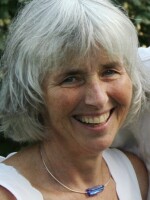A recent statewide poll by the Castleton Polling Institute found that Vermonters’ attitudes toward refugee resettlement varied sharply between lifelong residents and those who’ve lived away for at least 10 % of their lives. When lifelong Vermonters were asked whether they would support refugees resettling in their community, about half said they would. Roughly a third were opposed and the rest said it depends or they weren’t sure.
However, nearly three fourths of those who’ve lived elsewhere said they’d support refugees coming to their community. That’s much stronger support than lifelong Vermonters expressed. And while there were some who opposed it, their disapproval was about half that expressed by those who’ve never lived out of state.
Pollsters report that welcoming racial diversity - and even refugees - in the communities of those polled, was the only issue that broke along the lines of how long the respondents had lived in Vermont. The division correlated with party identification: newcomers tend to be Democrats, while lifelong Vermonters tend to be Republicans.
Language, too, reflects bias toward lifelong residents. “Native Vermonter” is usually a label of honor, while “flatlander” is code for “outsider.” Still, the first English settlement in Vermont was established less than three hundred years ago, and most Vermonters families’ arrived here only a few generations ago to work in the mills and quarries or on farms. And while each wave of newcomers encountered prejudice and discrimination, their contributions are visible everywhere.
Demetrios Latchis was a Greek immigrant to Brattleboro who started out selling food from a cart. By the 1930s, he’d established movie theaters in Brattleboro, Windsor and Woodstock; a book, Greek Epic: The Latchis Family and the New England Theater Empire They Built, will come out this fall.
The preserved and restored Art Deco Latchis Building in Brattleboro anchors Lower Main Street and boasts the only downtown hotel and a four-screen movie theater. More recent immigrants are also making their mark in Brattleboro, population 12,000. Chinese, Thai, Aztec, Korean, Indian and Turkish cuisine enrich the local food scene.
The country we know as the United States was founded by immigrants fleeing discrimination and learning to overcome their suspicion of each other. And most of our own families were immigrants once.
Tribalism, the impulse to view newcomers with suspicion and close ranks against them, may be a human instinct, but in a country of immigrants, we’d be wise to resist it.




